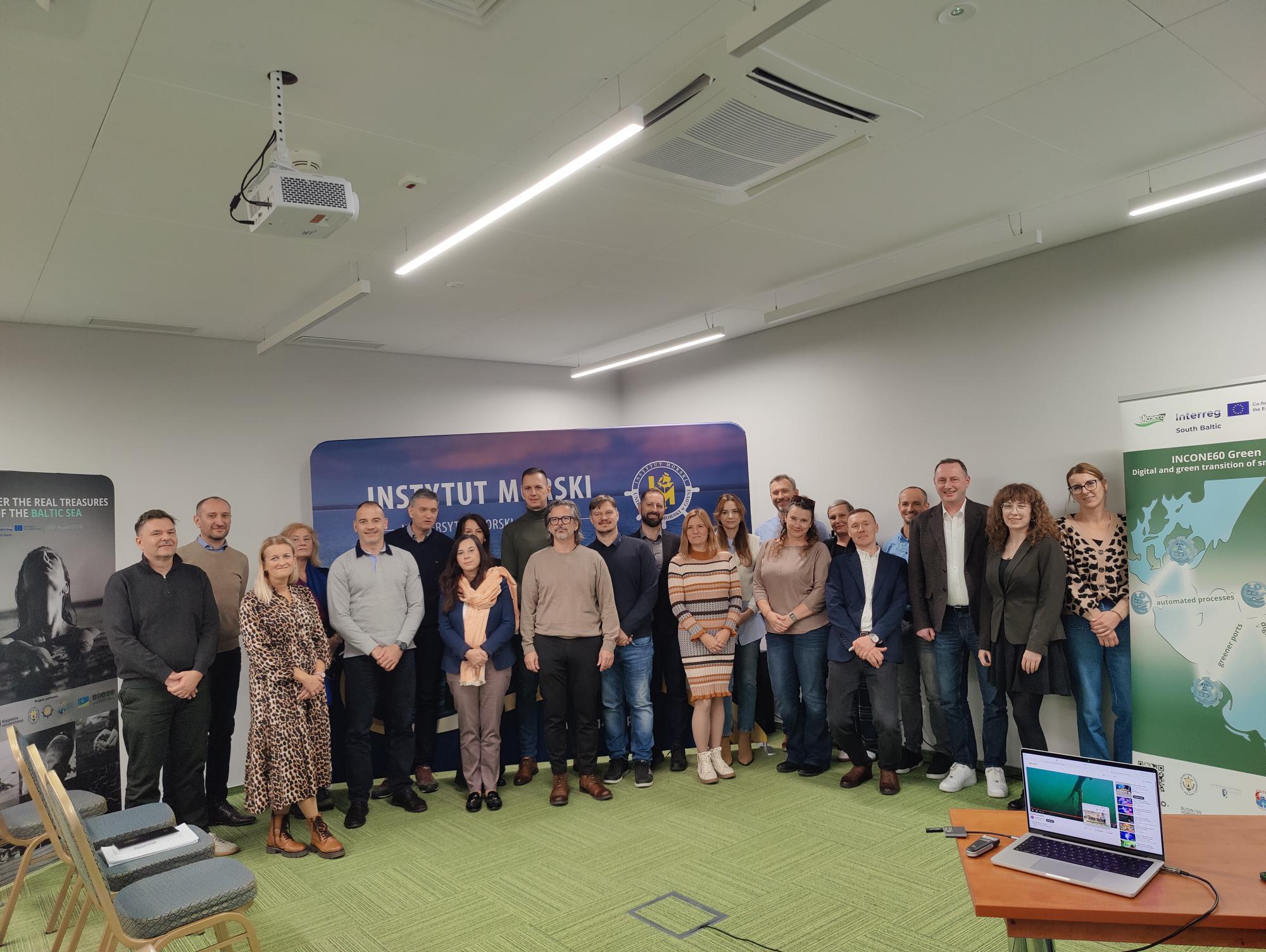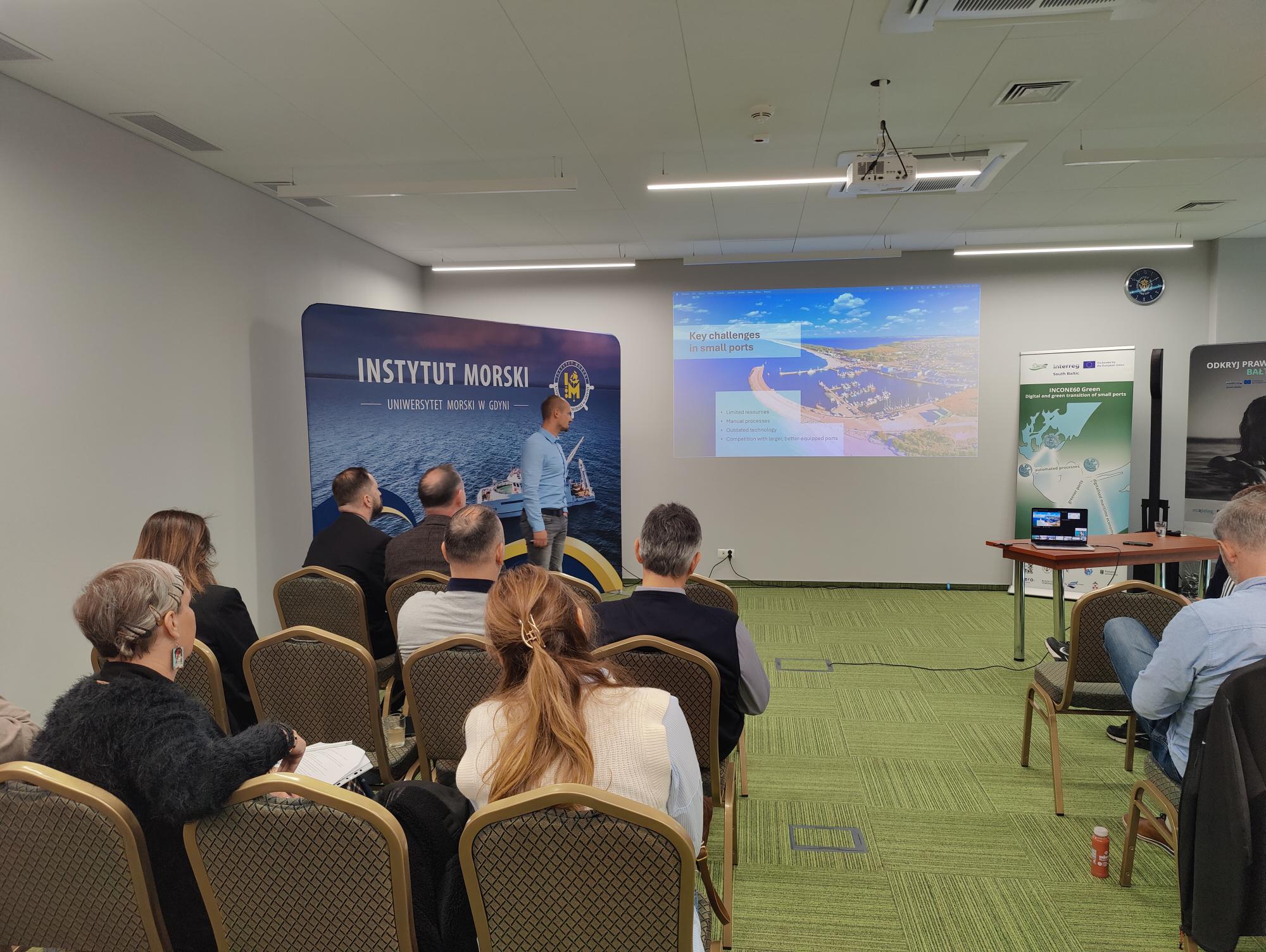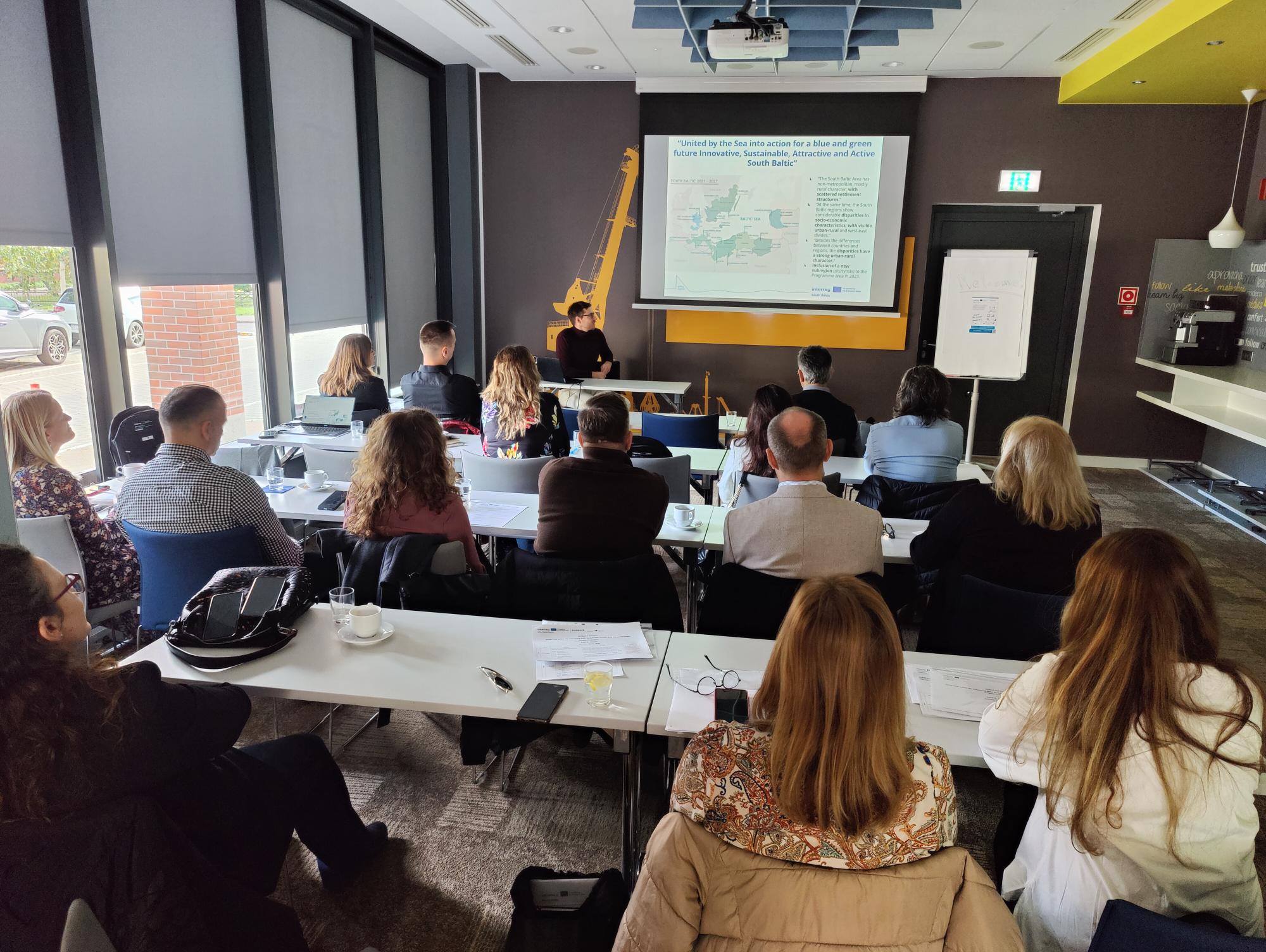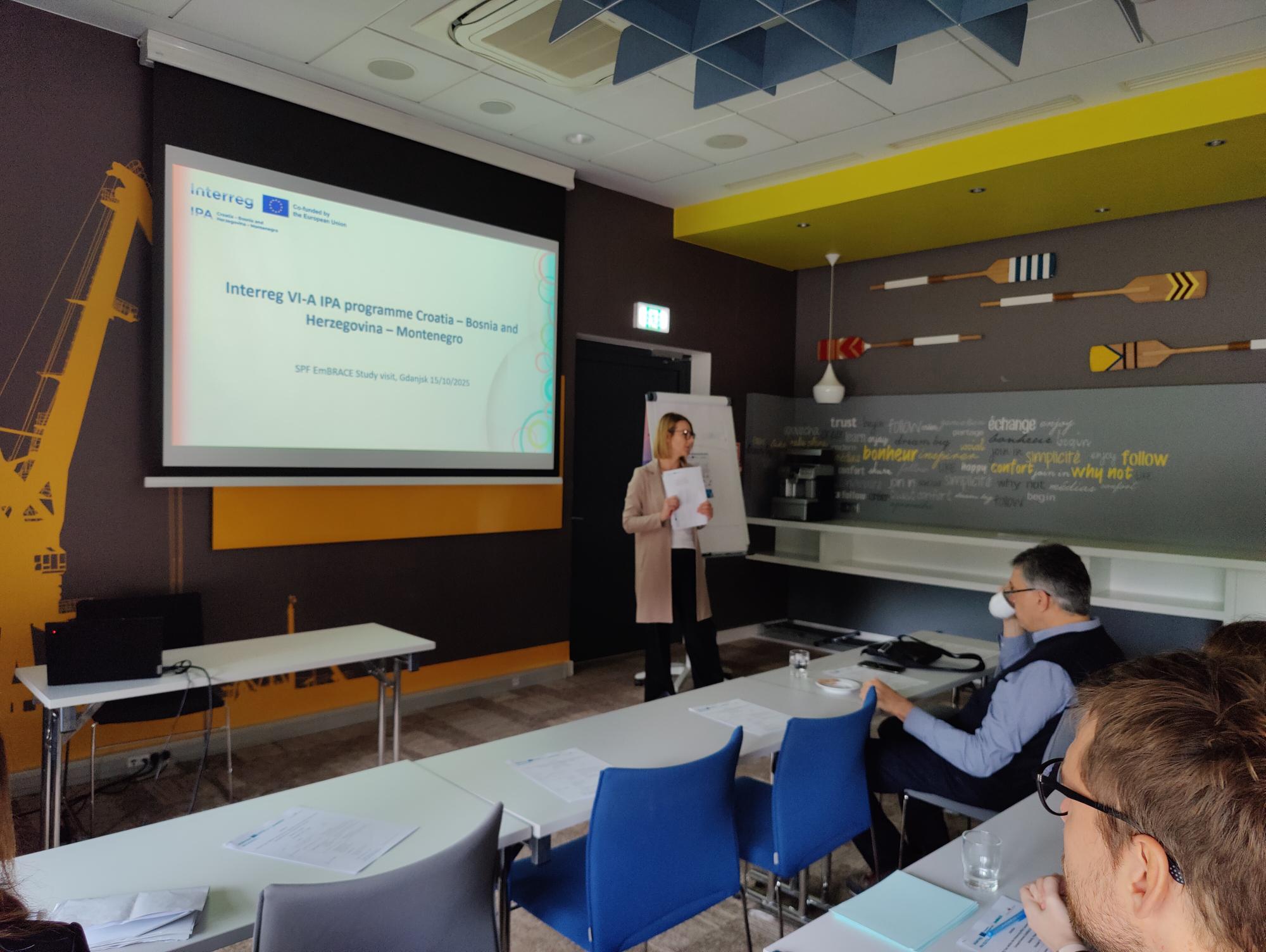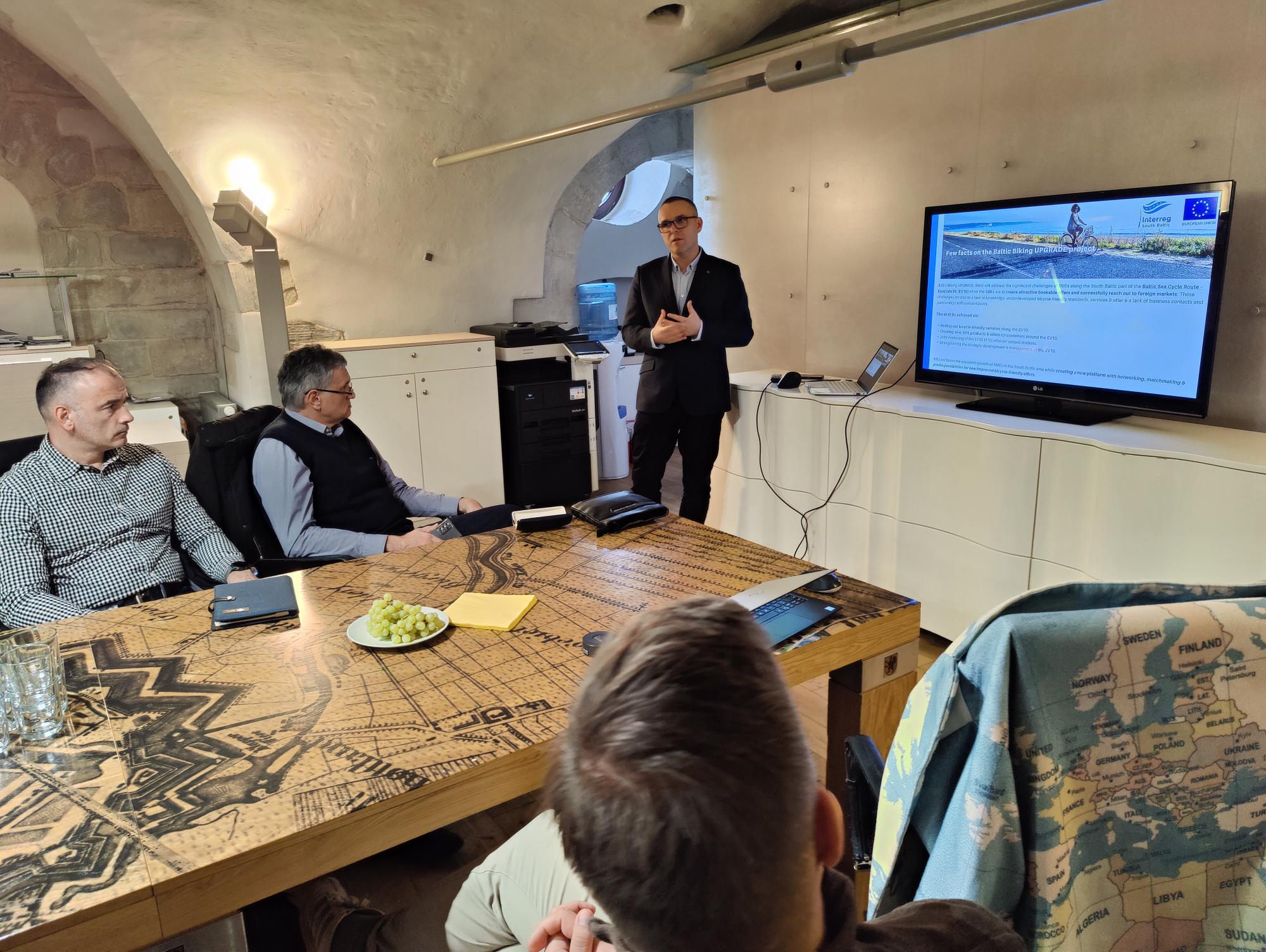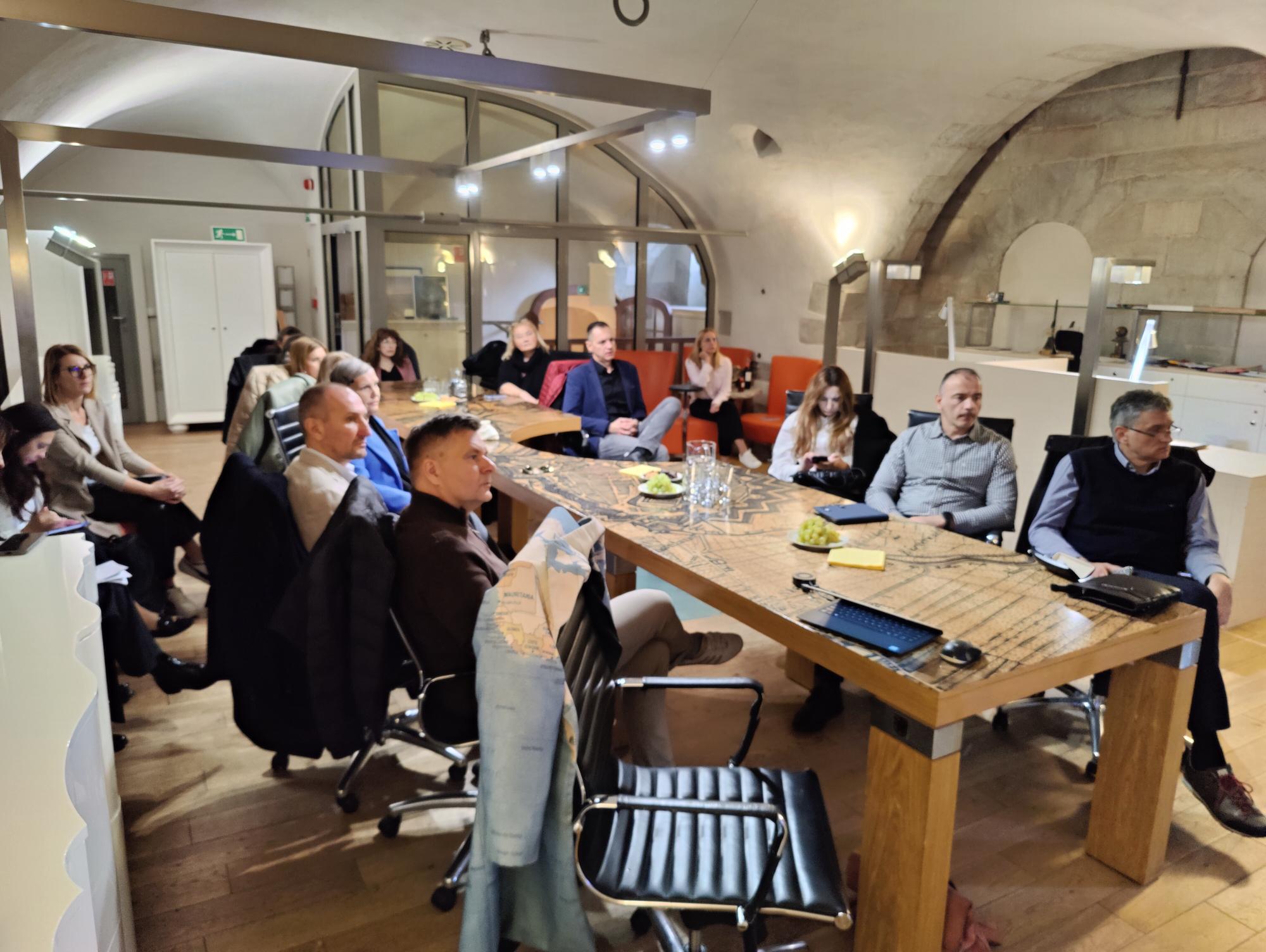Last week, the Interreg South Baltic Programme had the pleasure of hosting colleagues from the IPA Croatia – Bosnia and Herzegovina – Montenegro programme. This fruitful exchange provided an excellent opportunity for both teams to explore how our programmes support and engage with SMEs, sharing valuable experiences and learning from each other’s approaches.
During the visit, we had the chance to tour some of our impactful projects namely – Baltic Biking Upgrade, INCONE60Green, AquaGOOD, and IMPETUS – and see firsthand the positive impacts they are creating across the South Baltic area. These projects exemplify the creative and effective ways our programmes promote sustainable development and regional cooperation.
Interestingly, despite some differences, our programmes share several commonalities that sparked engaging discussions. One of the differences that drew particular interest was the Small Project Fund (SPF) instrument managed by the Agency cooperating with Interreg Croatia–Bosnia and Herzegovina–Montenegro which is dedicated solely to SMEs. To qualify, projects must involve at least two SMEs, with at least one from an EU country, and include a minimum co-financing rate of 85%. The project budget can go up to 200,000 euros, with an implementation period ranging from 6 to 12 months. According to the colleagues from the Agency, there is significant interest in these calls, especially since funding opportunities for SMEs are limited in Bosnia and Montenegro.
Another point of discussion was the approach to strategic projects. In this case, external consultants conducted analyses to identify the major needs within IPA Croatia – Bosnia and Herzegovina – Montenegro. Subsequently, the projects were developed through negotiations between the Programme institutions and partners, rather than through open calls. This tailored approach ensures that the projects align closely with the real needs of the region.
During the visit, we also shared basic information about our Programme, including eligibility checks and small-scale projects. Our own projects were well-prepared, and we can be proud of the achievements so far. Some of our guests showed genuine interest in the South Baltic Programme and expressed a desire to explore future collaboration opportunities, including the possibility of applying jointly to other Interreg programmes.
Overall, the colleagues from Croatia, Bosnia and Herzegovina, and Montenegro demonstrated a high level of professionalism, openness, and a strong interest in establishing future cooperation. Their willingness to learn and collaborate highlights the spirit of regional partnership that underpins the success of Interreg programmes. We look forward to further exchanges and joint initiatives that will strengthen ties and foster sustainable development across our regions.


